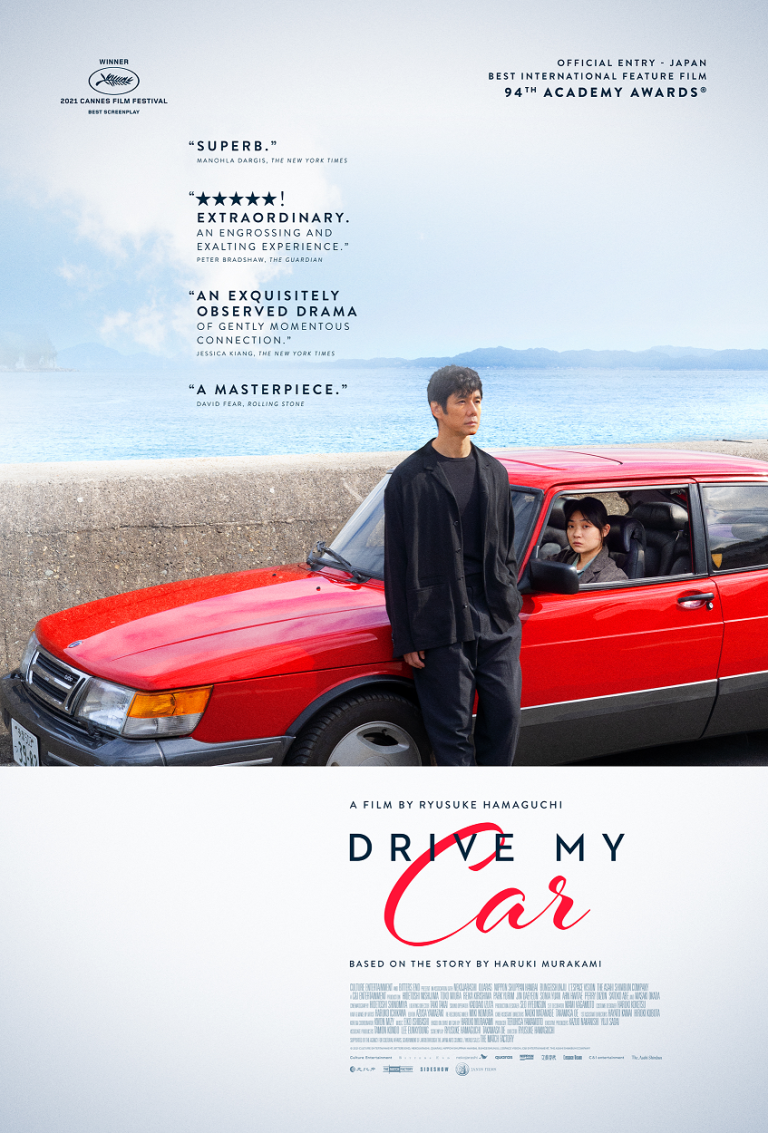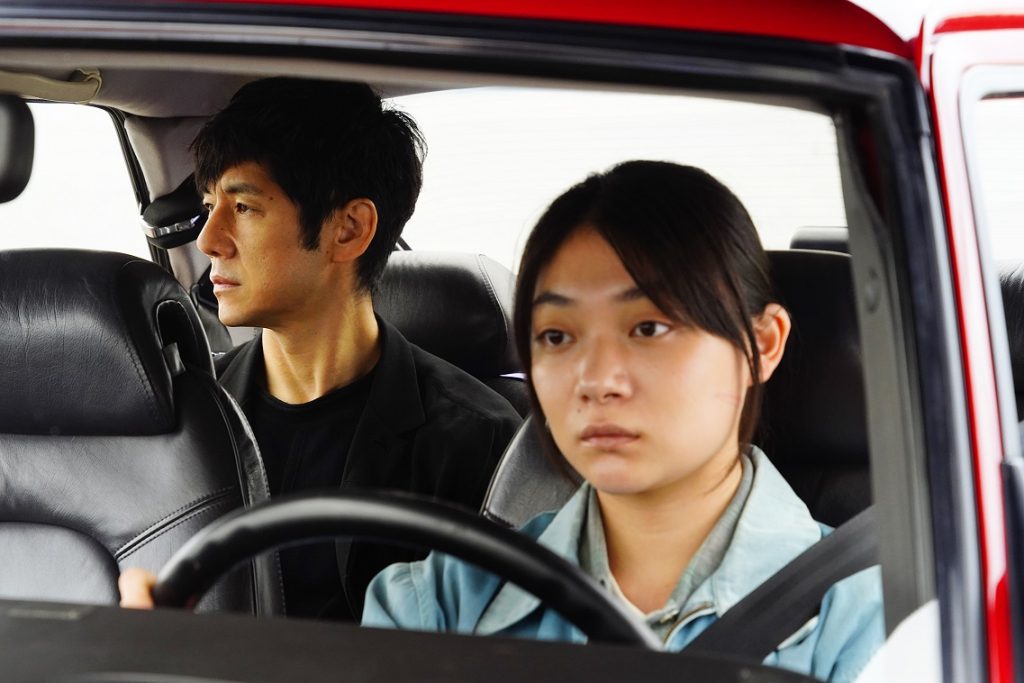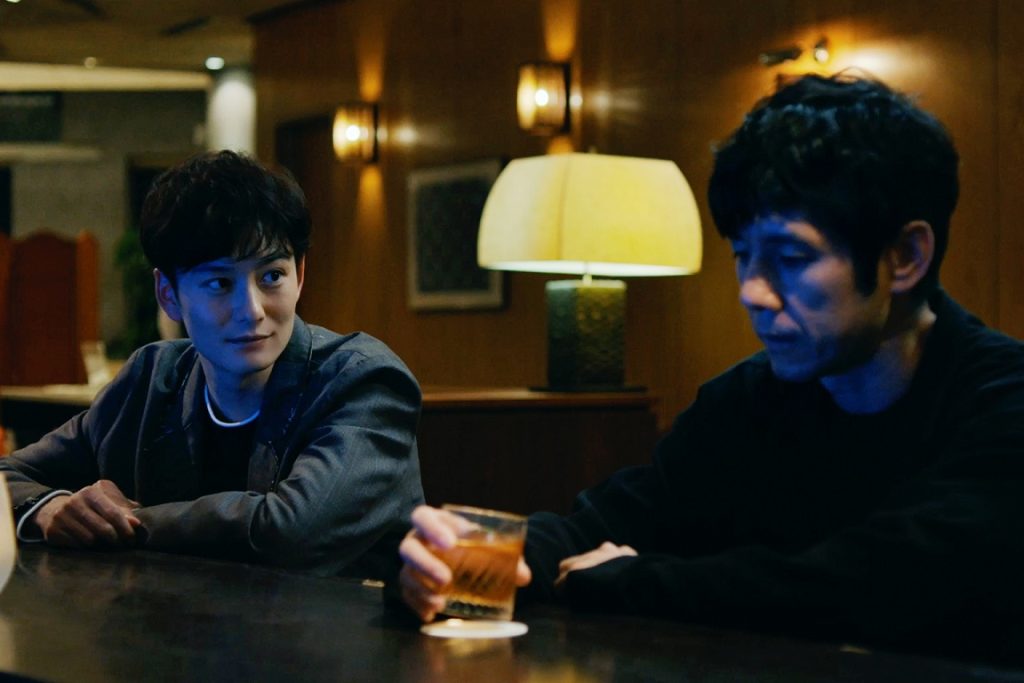
A person’s vehicle can hold a particular significance, even if it’s difficult to understand from the outside why that is. Those who commute to work on a bus or train may take solace in the short time they have to spend with their own thoughts on the way to a hectic and noise-filled day at the office, while those with cars may appreciate the familiarity of their vehicle’s features and the music they can play or the radio they can listen to while they sit in all-too-expected traffic. Drive My Car examines an even more intimate relationship between one man and the car that means everything to him.
Yûsuke Kafuku (Hidetoshi Nishijima), an actor, is married to Oto (Reika Kirishima), a screenwriter. The two exchange ideas and participate collaboratively in the creative process, which Oto finds most productive during sex. After he witnesses Oto having an affair and chooses not to confront her, Kafuku is shaken by her unexpected death shortly afterward from a brain hemorrhage. Two years later, Kafuku is in Hiroshima putting on a multi-language version of the play Uncle Vanya. The mandatory assignment of a driver, Misaki Watari (Tôko Miura), to ferry him from his accommodations to the theater each day is an uncomfortable and unwelcome change for a man accustomed to being alone.

There are many layers to this film, which runs a full three hours. Prior to her death, Kafuku would listen to recordings of Oto reading lines so that he could practice them while he was driving, and the sudden presence of another person in those hours that he would spend hearing only her voice is disruptive. There is evidently plenty about her loss that Kafuku has yet to process, and almost being in conversation with her on a daily basis has not enabled him to properly resume his life.
The staging of Uncle Vanya in multiple languages is also an opportunity for intriguing communication, one that finds one deaf actress, one who speaks only English and Mandarin, and another who knows only Japanese. The way in which they are able to understand each other through body language and stage directions is fascinating, and the process of many rehearsals and Kafuku commenting on how they are succeeding or failing in speaking to one another is immensely interesting. That one of the actors, Kôji Takatsuki (Masaki Okada), is the man Kafuku saw having an affair with his wife only further complicates his approach to putting on this play.

There are many moments of silence to be found throughout this lengthy film, which doesn’t suggest unnecessary padding but instead an ability to stop and sit with the misery of loneliness and the uncertainty of the future. Kafuku might not describe himself as an unhappy person, but he doesn’t radiate warmth or joy, and he seems to have no interest in investing in his own prosperity. He works because that is what he does, and he has no desire to build a new relationship with someone who, unsurprisingly, turns out to have a good deal of baggage herself, albeit of a different variety.
Drive My Car is an immersive experience from filmmaker Ryusuke Hamaguchi, one that functions on its own despite its heavy featuring of another story within it. It’s hardly surprising that it has been selected and shortlisted as Japan’s official Oscar submission for Best International Feature, along with picking up Best Picture prizes from the New York Film Critics Circle, Los Angeles Film Critics Association, and the National Society of Film Critics. Opening with scenes from Waiting for Godot and then diving deep into Uncle Vanya make its narrative reminiscent of The Salesman, but this film goes further to weave its own separate story, one that includes numerous unexpected diversions that flesh out the characters. In this case, three full hours is a reward, and this film leaves a distinct impact after it has ended that reflects the depth of its characters and their journeys that it explores.
Grade: B+
Check out more of Abe Friedtanzer’s articles.
Drive My Car is currently playing in theaters.

